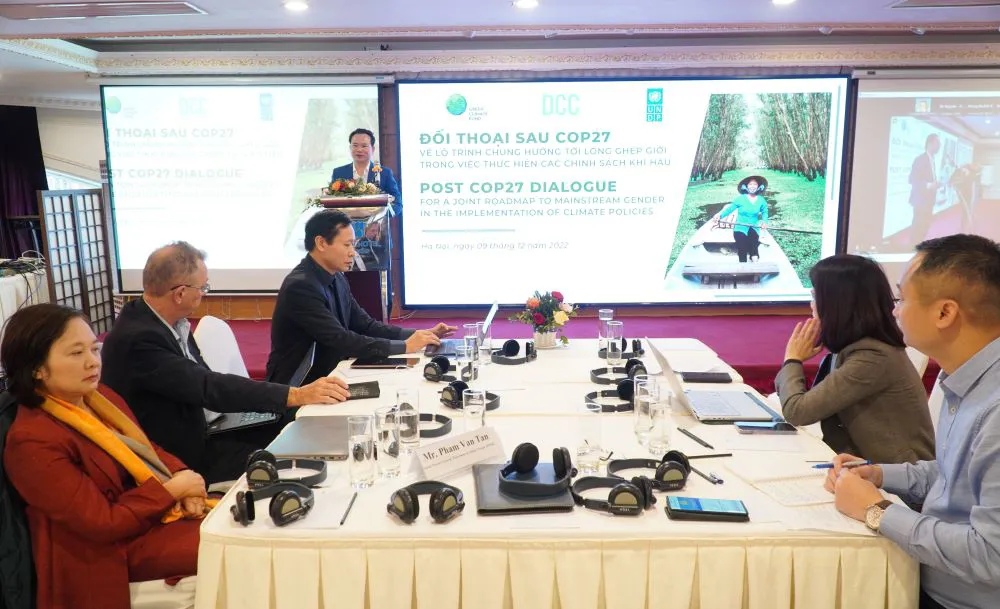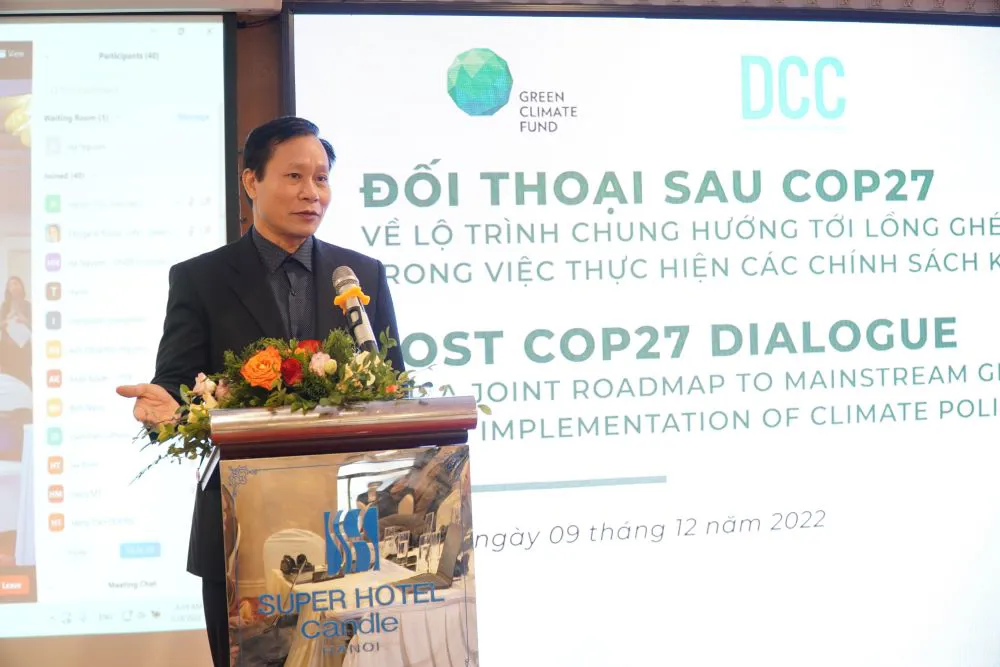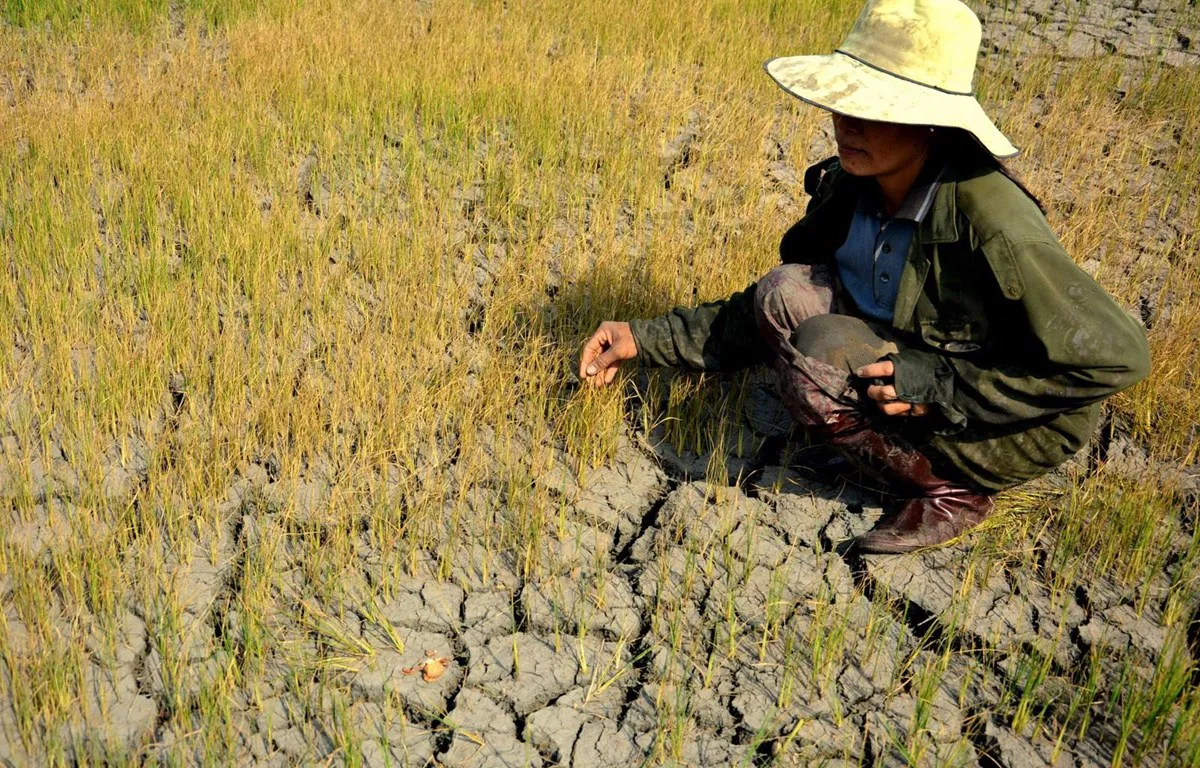Vietnam highlights gender role in National Adaptation Plan
Vietnam’s report on women empowerment and solutions to promote gender equality in the country’s National Adaptation Plan will be subsequently submitted to the UN Framework Convention on Climate Change (UNFCCC).
Vietnam is committed to gender equality and climate action as the country’s top priorities, a senior official from the Ministry of Natural Resources and Environment (MONRE) has highlighted.
| Pham Van Tan, Deputy Director General of the Department of Climate Change under the Ministry of Natural Resources and Environment (MONRE), speaks at a conference held in Hanoi on Dec 9. Photo: UNDP |
The country is an active member of all international agreements supporting these interconnected goals, Pham Van Tan, Deputy Director General of MONRE’s Department of Climate Change, said at a conference held in Hanoi earlier this week under the support of the United Nations Development Program (UNDP).
Continuous efforts to mainstream gender equality are progressively generating tangible progress, as illustrated by the National Climate Change Strategy for the period to 2050, Tan added.
A report entitled “Mainstreaming Gender Considerations into the National Adaptation Plan of Vietnam (NAP)” provides an updated and comprehensive overview of climate and gender governance structure, examines the factors that drive gender inequalities and women's vulnerability to the impacts of climate change, and analyzes the status of mainstreaming gender into sectoral policies, before offering a set of recommendations.
The report is aimed to inform and enhance improvement and solutions to promote gender equality in the NAP technical report of Vietnam, which will be subsequently submitted to the United Nations Framework Convention on Climate Change (UNFCCC).
| Dao Xuan Lai, UNDP Head of the Climate Change and Environment Unit, delivers a speech at the event. |
Dao Xuan Lai, UNDP Head of the Climate Change and Environment Unit, highlighted that “gender equality is often mentioned as a ‘principle’ in policies, which marks a step in the right direction.”
However, there is a strong need to develop practical tools to move from theory at the central level to implementation at the local level. This calls for the formulation of specific gender guidelines geared towards the line ministries and provinces in promoting gender equality in climate change responses.
"It is clear that the nexus is progressively better understood, and the survey revealed a certain level of knowledge within some ministries, while in contrast, for others, the question of gender equality is still considered an "add-on" and in the silo. We need to collectively continue raising awareness, building a knowledge base, and educating all stakeholders," he emphasized.
| The event draws a large number of domestic and international experts. |
Vietnam’s efforts matter a lot in common drive
In the conference titled “Post-COP27 Dialogue for a Joint Roadmap to Mainstream Gender in Climate Policy Implementation,” participants took stock of the country's progress in mainstreaming gender in climate policies, particularly in five prioritized y sectors of the Vietnam National Adaptation Plan (NAP).
They discussed how relevant climate policies and Vietnam NAP would be instrumental in creating impactful changes for building resilience for women and men at the local level.
Climate change causes more negative effects on specific groups of women owing to underlying inequalities related to education, health, employment, access to and control of natural and financial resources, the opportunities to participate in policy and decision-making processes, and division of labor.
Climate change can limit livelihood opportunities for women, especially when coinciding with other structural inequalities. Additionally, the role of women in climate action has not been properly recognized. Women are often considered “victims” of climate impacts instead of “positive change-makers.”
In effect, women have been making crucial contributions to climate actions, and they have the capacity to act and support their communities in recovering from shocks and natural disasters. Nevertheless, their resilience also depends on the social, economic, and governance capacity and structures at different levels.
| A woman on a rice field suffered from a prolonged draught in Vietnam. Photo: VNA |
The COP27 held a separate session on gender issues. However, countries have not reached an agreement on the provision of additional resources to support gender-related decisions and mandates in the UNFCCC process. Countries need to make more efforts to ensure gender balance in national delegations and nominate more women as high-level champions at COP.
In this regard, results, insights, and conversations of the dialogue by representatives of UN Agencies, Vietnam’s ministries, Embassies, NGOs/ CSO, and academia will be harvested and synthesized by UNDP to inform the Joint Roadmap and set a practicable action to move together for gender-sensitive implementation.












